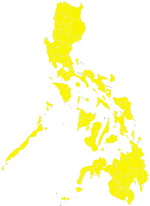
Organizers
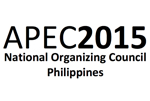
|
APEC National Organizing Council (APEC NOC)The APEC-NOC is in charge of planning and managing the hosting of the APEC Economic Leaders Meeting, Ministerial Meetings, and Senior Official Meetings when the Philippines chairs APEC in 2015. It is composed of the Executive Secretary as chairman, Secretary of Foreign Affairs as co-chairman, with the Secretary of Trade and Industry, the director-general of the National Economic and Development Authority, Secretary of Budget and Management, Secretary of Finance, Secretary of Transportation and Communications, Secretary of Tourism, Secretary of Public Works and Highways, Secretary of the Interior and Local Government, Secretary of National Defense, Cabinet Secretary, Secretary of the Presidential Communications Development and Strategic Planning Office (PCDSPO), National Security Adviser, head of the Presidential Management Staff, and chair of the APEC 2015 Private Sector Advisory Council (APSAC) as members. |

|
National Competitiveness Council (NCC)The NCC is a public-private sector advisory council whose mission is to improve the competitiveness position of the Philippines. Its vision is to promote a more Competitive Philippines and instill a Culture of Excellence through public-private sector collaboration as a means to reduce poverty through inclusive growth. It carries out its mission through a series of Working Groups, Task Forces, and Regional Competitiveness Committees focused on process improvements and performance monitoring at national and local government levels. The NCC is chaired by the Secretary of Trade and Industry and co-chaired by a private sector executive. Other members include the Secretary of Finance, Secretary of Energy, Secretary of Tourism, Secretary of Education, Director-General of NEDA, and four private sector executives. |

|
Asia SocietyAsia Society is an organization dedicated to promoting mutual understanding and strengthening partnerships among peoples, leaders and institutions of Asia and the United States in a global context. Across the fields of arts, business, culture, education, and policy, the Society provides insight, generates ideas, and promotes collaboration to address present challenges and create a shared future. Founded in 1956, the Asia Society is a nonpartisan, nonprofit educational institution with offices in Hong Kong, Houston, Los Angeles, Manila, Mumbai, New York, San Francisco, Seoul, Shanghai, Sydney and Washington, DC. Asia Society Philippine Foundation, Inc. was established in 1999 by Washington Sycip. Set at the center of the ancient trade routes of the Pacific, the Philippine Center is perfectly positioned to play an active role in building cultural bridges—not only between America and the Philippines, but also among Asian countries. |
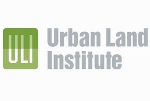
|
Urban Land Institute (ULI)Urban Land Institute is a nonprofit research and education organization founded in 1936 and now operating in 95 countries worldwide, representing the entire spectrum of land use and real estate development disciplines, working in private enterprise and public service. As the preeminent, multidisciplinary real estate forum, ULI facilitates the open exchange of ideas, information and experience among local, national and international industry leaders and policy makers dedicated to creating better places. The mission of the Urban Land Institute is to provide leadership in the responsible use of land and in creating and sustaining thriving communities worldwide. |
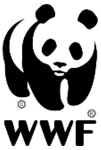
|
World Wildlife Fund (WWF)WWF-Philippines has been working as a national organization of the WWF network since 1997. As the 26th national organization in the WWF network, WWF-Philippines has successfully implemented various conservation projects to help protect the biological richness of some of the most biologically-significant ecosystems in Asia. WWF’s involvement in the Philippines dates back to 1969, when it funded efforts to protect the Philippine eagle. This grew into a full-fledged program when, in 1988, the Philippines became the first Asian country to benefit from an innovative scheme called the Debt for Nature Swap. The Debt for Nature Swap involves the cancellation of a portion of the Philippines’ debt with a country in exchange for funding high-priority conservation projects. In 1991, WWF facilitated the completion of a US$25 million debt swap for the Philippines funded by USAID. The WWF-Philippines Program was also established in Manila to supervise numerous field activities and to work more closely with local partners. |
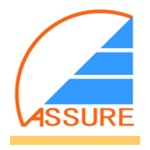
|
Alliance for Safe and Sustainable Reconstruction (ASSURE)Super Typhoon Haiyan (local name: Yolanda) has spurred environmental planners and other like-minded professionals to channel their collective expertise and experience towards the task of rebuilding devastated towns and cities. They have banded together to form a volunteer alliance called Alliance for Safe and Sustainable Reconstruction (ASSURE), a non-profit, non-stock corporation. ASSURE also serves as a channel and a means for volunteers to give back to the communities through their voluntary professional service. ASSURE is comprised of environmental planners, architects, engineers and related professionals from all over the country, most of whom have extensive experience working with international development organizations such as the UN, World Bank, Asian Development Bank, USAID, AusAID, GIZ, and JICA among others; national government agencies; local government units; and the private sector. |

